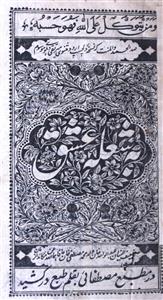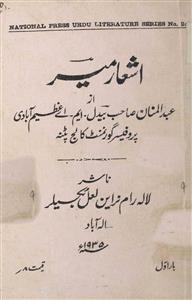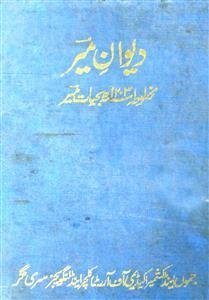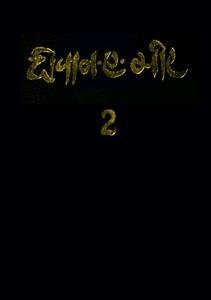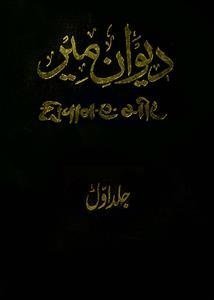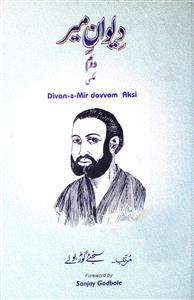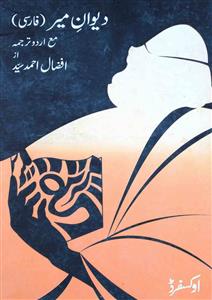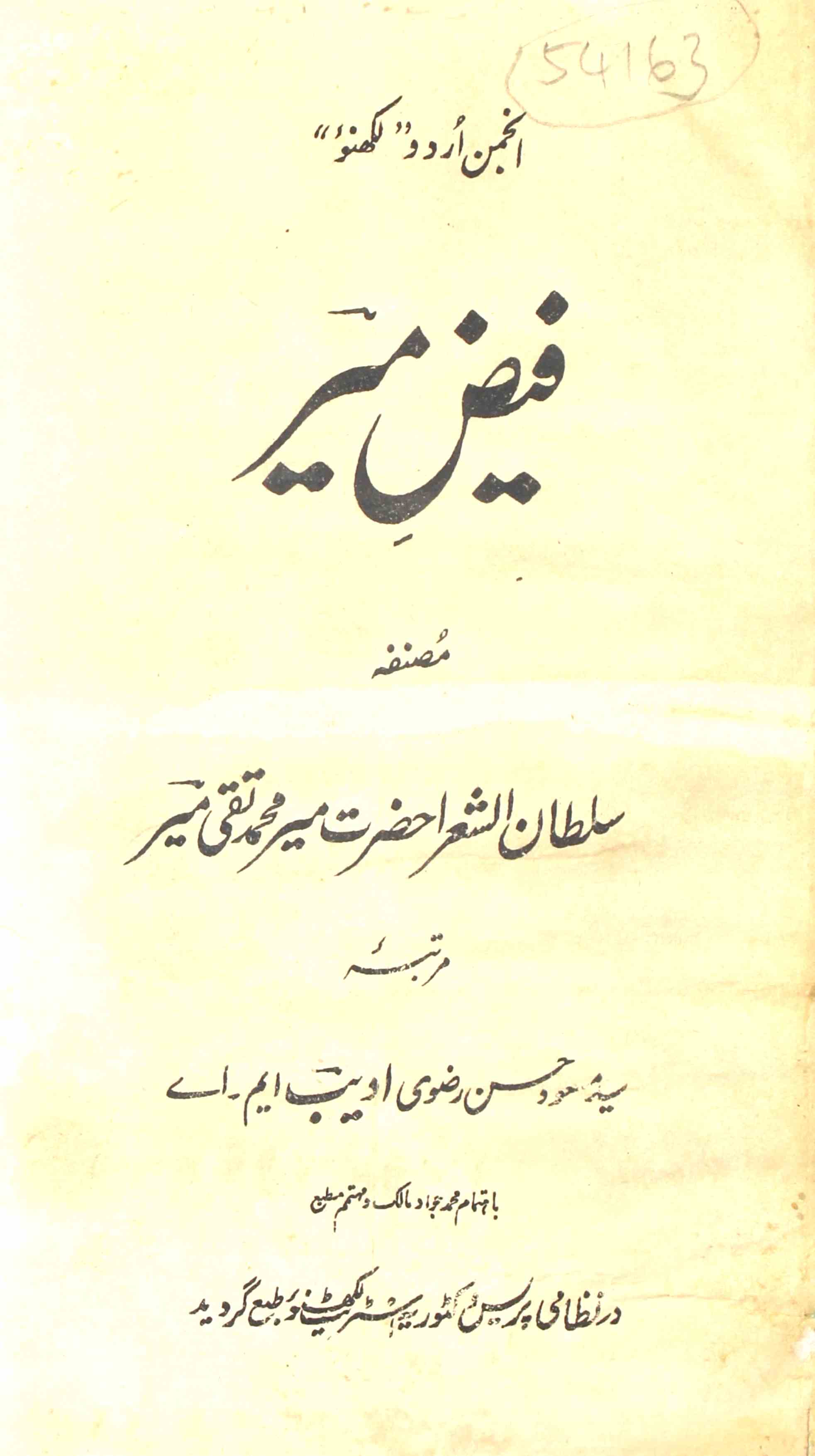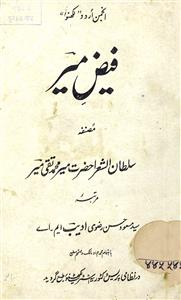 For any query/comment related to this ebook, please contact us at haidar.ali@rekhta.org
For any query/comment related to this ebook, please contact us at haidar.ali@rekhta.org
About The Book
مثنوی "شعلہ عشق"میر تقی میر کی عشقیہ مثنوی ہے۔اس مثنوی کے نام میں تھوڑا سا اختلاف پایا جاتا ہے،بعض نسخوں میں "شعلہ عشق" ہے جب کہ بعض نسخوں میں "شعلہ شوق "ہے۔ اس مثنوی میں عشق کا ایک عجیب و غریب قصہ نقل کیا گیا ہے، جس کےبارے میں بعض حضرات کا کہنا ہے کہ یہ واقعہ مبنی بر حقیقت ہے،،مثنوی کا واقعہ کچھ یوں ہے کہ عظیم آباد پٹنہ کا رہنا والا حسن نام کے نوجوان کو ایک دن مہاجن کی لڑکی شیام سندر ملتی ہے جو کہ گنگا سے اشنان کرکے آرہی تھی،ایک ہی نظر میں حسن شیام سندر پر فریفتہ ہو گیا، لڑکی کے قرب کی خاطر وہ نوجوان پہلے خود کا نام تبدیل کرتا ہے اور سنسکرت میں مہارت حاصل کرکے ہندوں کے مذہبی علوم میں دسترس حاصل کر لیتا ہے، اور پنڈت بن کر اس لڑکی کے گھر کافی اثرو رسوخ حاصل کرلیتا ہے حتی کہ شیام سندر کی شادی کے وقت ،اسی نوجوان کو مذہبی مراسم کی انجام دہی کے وقت پنڈت مقرر کیا جاتا ہے، عین رسومات کے وقت آگ لگ جاتی ہے اور یہ نوجوان ،شیام سندر کو گود میں لیکر کھڑکی سے باہر نکل جاتاہے، لوگ یہ سمجھتے ہیں کہ دونوں اسی آگ میں خاک ہوگئے، بعد میں یہ دونوں شادی کر لیتے ہیں، ایک مرتبہ یہ نوجوان جس کا نام حسن تھا وہ کشتی کے ذریعہ کسی میلے میں جارہا تھا کہ اس کی کشتی طوفان میں ڈوب گئی لوگوں کو لگا کہ حسن ڈوب گیا اور یہ خبر عام ہوگئی کہ حسن ڈوب کر مر گیا ہے،حالانکہ وہ کسی طرح بچ کر کنارے پر پہنچ گیا تھا۔ جب یہ خبر شیام سندر کے پاس پہنچی کہ حسن دریا میں ڈوب کر مر گیا ہے تو شیام سندر نے بھی اپنی جان دیدی۔ شیام کی موت سے حسن بہت پریشان ہوا، کچھ دنوں کے بعد خبر ملی کہ اس دریا میں آسمان سے ایک روشنی اترتی ہے جو کہ حسن کا نام لیکر پکارتی ہے، حسن اس دریا کے پاس جاتا ہے اور ایک کاغذ پر اپنی داستان حیات لکھ کر اپنی صدری میں رکھتا ہے اور وہ صدری کشتی میں رکھ دی، جب رات ہوئی توشعلہ اترتا ہو نظر آیا اور پانی سطح پر آکر پر درد انداز میں حسن کو پکارنے لگا، حسن پانی میں کود کر شعلے کی طرف بڑھااور اس میں سما گیا،کچھ دیر بعد دریا کے اندر سے دو روشنیاں ظاہر ہوئیں اور ساری فضا منور ہوگئی ، تھوڑی دیر بعد ہلکے ہلکے روشنی مدھم پڑگئی ۔واقعہ لوگوں کے درمیان کافی مشہور ہے حتی کہ لوگوں کا کہنا ہے کہ حسن کی صدری سے وہ رقعہ بھی ملا جس میں اس نے احوال عشق رقم کیے تھے۔
About The Author
Maohammad Taqi (1722/23-1810) was born in Akbarabad, now Agra, in a family of very modest means. His father, a pious man of high spiritualist leanings, wished him to follow the path of piety and got Syed Amanullah, a young man who revered Meer’s father, to mentor him. The two did not live long enough to see Meer grow as they wished. Left on his own at an early age of eleven, Meer had to fend for himself then, and thereafter. As he had to explore the means of his livelihood, he went to Delhi where he met Khwaja Mohammad Basit, a kind man, who introduced him to Nawab Samsamuddaulah with whom he found favour. The nawab provided him with the source of his sustenance but it did not last long as he was killed facing Nadir Shah’s attack. Forlorn once again, Meer veered between Delhi, Agra, and its neighbourhood finding irregular support from several nobles for meeting his day-to-day- needs. While he suffered immeasurably at a personal level, he also witnessed the attacks of Nadir Shah and Ahmad Shah Abdali on Delhi, and the decline of Mughal Empire. As Delhi stood derelict and saw the men of taste leaving one by one, he too left. He was called by Nawab Asifuddaulah to Lucknow where he found relief but the extreme sensitivity of his nature did not let him live in peace for long. He refused the favours from the nawab and retreated into his own shell of loneliness and suffered his misery. Happiness was only a short season in Meer’s life; pain a perennial condition. He lived without an address in life, as in death, since the place he was buried is no longer traceable after the laying of rail tracks in the vicinity.
Meer is generally supposed to be a poet of angst but his greatness lies in how he unravelled the existential dilemmas, developed a form, evolved his diction, and brought it to perfection. One of the most remarkable features of his poetry is that he has expressed himself with complete sincerity and disarming frankness on almost every aspect of life and living. This is well testified by the six divans of Urdu and one of Persian ghazals he has left behind, apart from his mathnawi, musaddas, qasida, hajw, and wasokht. He also wrote Nukatusshuara (a tazkira of Urdu poets) Zikr-e Meer (an autobiography), and Faiz-e Meer (a description of Sufi saints) which ensure him a place of prominence in the annals of Urdu literature as a poet, biographer, and critic of sorts.
 For any query/comment related to this ebook, please contact us at haidar.ali@rekhta.org
For any query/comment related to this ebook, please contact us at haidar.ali@rekhta.org
